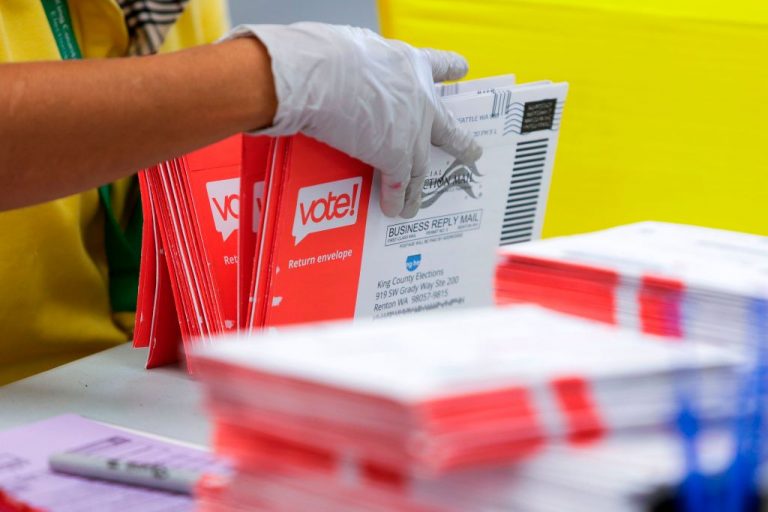Foreign parties can not be banned from funding referendum campaigns, the Federal Election Commission ruled on Monday, thus subverting the democratic lawmaking process, opponents say.
“A major question stemming from the decision is whether foreign nationals are now permitted to spend money to influence the actual mechanisms of the U.S. democratic process,” Axios reported.
The ruling only applies to the federal level and only pertains to referenda. Ballots that involve candidates running for a public office still fall under the 1971 Federal Elections Act that prohibits any financial involvement of foreign investors or lobbyists.
“The United States Supreme Court has long recognized that the Act ‘regulates only candidate elections, not referenda or other issue-based ballot measures,’” the FEC ruling stated.
In particular, congressional redistricting issues which are frequently subject to ballot referenda could be subjected to outside interference, which could therefore have an impact on federal decision-making indirectly.
Success
You are now signed up for our newsletter
Success
Check your email to complete sign up
On a state level, it’s up to the states themselves whether to rule out foreign backers or not. So far seven states have ruled out the possibility for external parties to fund state-registered ballot committees.
The ruling was made necessary after a ballot initiative 1-186 in Montana, which attempted to restrict hard-rock mining company, Sandfire Resources American Inc. from digging for gold and silver out of environmental concerns.
The measure lost by about 56,000 votes, thanks to heavy investments of US$300,000 to the anti-1-186 campaigning team by Sandfire, which is a Canadian subsidiary of an Australian corporation.
Supporters of the ballot measure deemed it a violation of the Federal Elections Act which forbids foreign donations and filed a complaint to the FEC.
However, The FEC ruled that The 1971 Act does not apply to ballot initiatives like referenda which normally do not involve electing candidates running for office.
“Consistent with the Act and court precedents, the Commission has observed that spending relating only to ballot initiatives is generally outside the purview of the Act because such spending is not ‘in connection with elections.’” The FEC said in its report.
“Ballot initiatives are not ‘elections’ under the Act and that, therefore, the Act’s foreign national prohibition does not apply to their activities,” it explained.
David Brooks, executive director of Montana Trout Unlimited and one of the complainants, told Axios reporters he found the ruling “surprising and scary,” according to the outlet.
“Are we, as U.S. citizens, really OK with letting foreign money go directly to state lawmaking via citizen initiative campaigns?” Brooks asked.
Brendan Fischer, the director of federal and FEC reforms at the Campaign Legal Center, observed that “This FEC decision reflects a big loophole in the federal ban on foreign money in U.S. elections,” the outlet reported.
The Commission’s ruling was met with biting criticism by mainly conservative media, who interpreted it as another sellout of U.S. democratic sovereignty by the left.
“The Biden administration has taken another big step in its plan to surrender American sovereignty to a global authority,” Truth and Action, a patriotic media remarked.
“By allowing foreign money to go directly to state lawmaking via citizen initiative campaigns the door is wide open for deep pockets to change our country from within,” the outlet stated. “States can outlaw this, so we are likely to see Blue States comply while Red States will be much less likely to capitulate.”
“This ruling will pave the way for George Soros, et al., to complete the destruction of the U.S. from within,” Legitov, another media noted.
Also many conservative influencers took to social media to lambast the FEC’s decision.
“The FEC just decided to allow FOREIGN money to start pouring into certain U.S. elections,” Republican congresswoman Claudia Tenney fulminated on Twitter.
“DC bureaucrats have truly lost their minds. We are a sovereign nation,” Tenney added. “Foreign money should have ZERO place in our elections. I’m fighting to stop this,” she said.
The outrage over the FEC’s alleged ‘Judas kiss’ is understandable but to deem it another coup by the left is not entirely fair; three out of six board members of the commission’s board are Republican who, together with Shana M. Broussard, the Democratic chair, endorsed the ruling in a July vote that was kept secret until earlier this month.
















